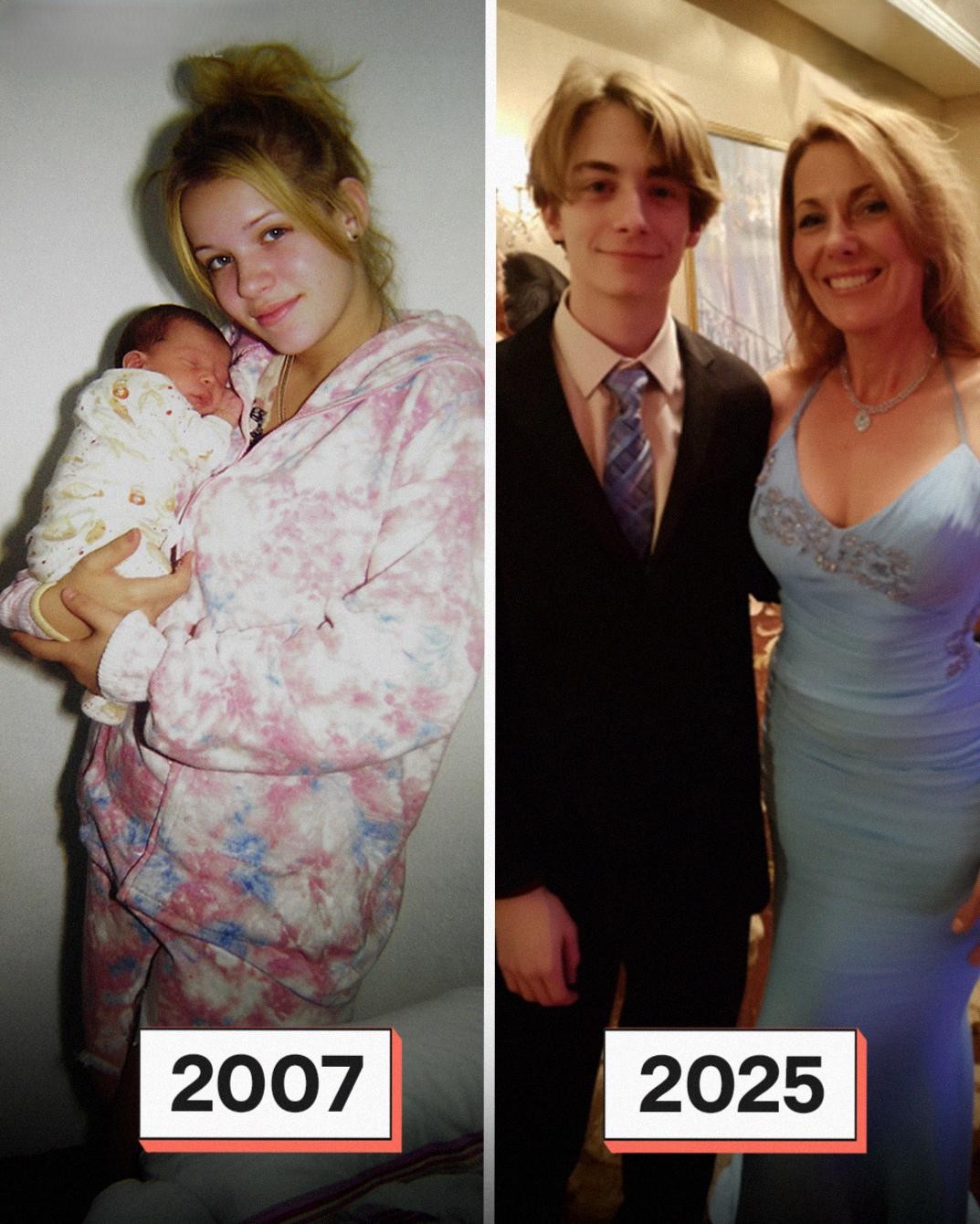I thought it would be a sweet, quiet tribute—nothing dramatic, nothing designed to draw attention, just a small gesture of love. I imagined a slow song, a soft moment in a room full of teenagers who didn’t care enough to look too closely. But what I thought would be simple and gentle somehow unraveled into a public reckoning that none of us saw coming. One slow song, one spotlight, and suddenly my mother’s entire life story was pulled out into the open, laid bare in the middle of the school gym. And along with it came every lie my stepsister had been telling herself for years about who the “embarrassing” one in the house really was. By the end of the night, my family—fractured in ways we never talked about—had been forced to face truths we’d been tiptoeing around for as long as I could remember.
I walked into prom believing I was just giving my mom a memory she had been robbed of at seventeen, a moment stolen from her by circumstances she had never been allowed to forget. I thought I was giving her something small and private. But instead, I witnessed something far bigger than a dance. I watched the woman who had sacrificed everything—her youth, her dreams, her sense of worth—finally be seen clearly, maybe for the first time in her life. Not as a mistake, not as a cautionary tale whispered about by relatives, not as the girl who “messed up too young,” but as the quiet, steady hero she had always been. The moment the principal stopped the music, took the microphone, and told our story to the whole room, something in the air changed. And when the crowd started chanting my mom’s name—dozens of voices rising in support, kids she’d never met cheering for her as if they had always known her—something inside our home shifted forever. My mom’s shame, that fragile thing she carried like a second skin, cracked open. And in its place stood a woman who finally understood that she had nothing left to apologize for.
Brianna’s cruelty didn’t evaporate overnight. It didn’t disappear with one grounding or one forced apology letter scribbled out at the kitchen table. People don’t change that quickly, not when meanness has been their comfort. But the power dynamic changed, unmistakably and permanently. My stepdad—who had always tried to smooth things over, pretend the tension wasn’t real, act like silence could fix what was broken—finally drew a hard line. He stopped ignoring the small digs, the rolled eyes, the whispered jokes at my mom’s expense. My mom, for the first time, saw clearly who would stand up for her, who would push back instead of shrinking away. And I learned something I hadn’t understood before: that loving someone doesn’t always mean protecting them from the world. Sometimes it means placing them gently but firmly in a spotlight they were taught they didn’t deserve, so everyone else can see the truth you’ve known all along.
That night didn’t magically fix everything. It didn’t erase years of tension or undo the wounds that had shaped us. But it did something better—something deeper and more lasting. It told the truth, out loud, in a room full of people who couldn’t ignore it. It made hiding impossible. It forced our family to look at itself honestly, to see who we really were instead of who we pretended to be. And once the truth was spoken, once the light hit it, there was no way to go back to the way things were before.
